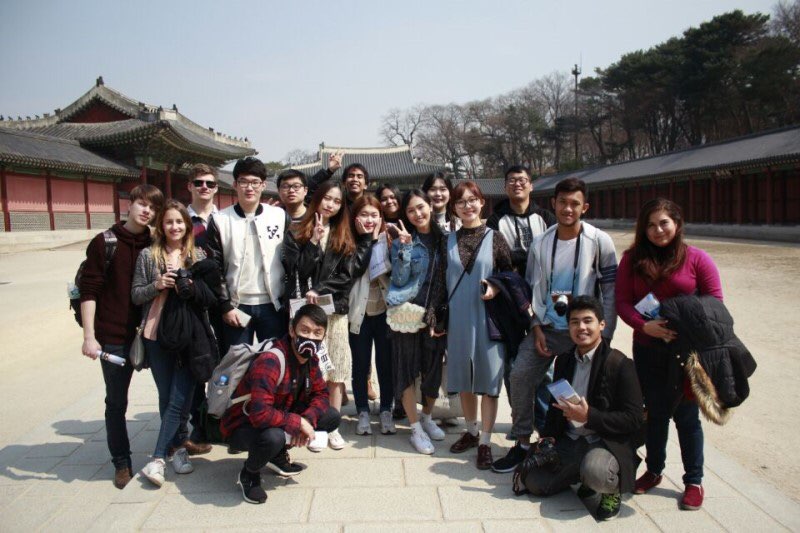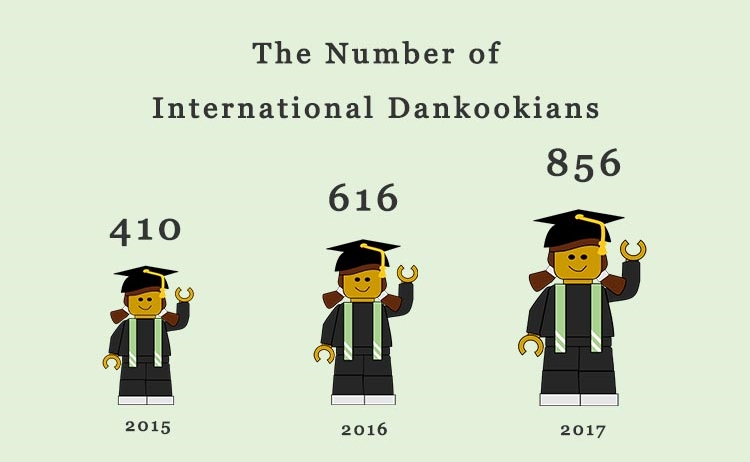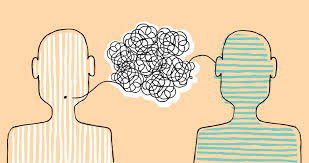 |
Globalization of the student body is the solution touted to make up for a reduction in the number of local registrants at Dankook University (DKU) and many other post-secondary institutions. According to statistical data from the Korean Ministry of Education, there are 123,858 international students currently studying in Korea, an increase of 151.4% since 2007, indicating a significant shift in focus in the make-up of those participating in Korean post-secondary education. Moreover, the Ministry of Education is hoping to see the number of foreign students reach 200,000 by 2023 and is offering support programs to help post-secondary institutions achieve these goals. With DKU also trying to expand their own international student body by inviting more overseas learners to study with us, the Dankook Herald (DKH) and the Dandae Newspaper decided to create a collaborative project covering the current developments and to suggest ideas for an improved plan for the globalization of our student body.
Furthermore, during their first year, new full-time international students are assigned a mentor from the Global Talent Network (GTN), an association made up of Korean Dankookians that helps both full-time and short-term international Dankookians adjust to life in Korea and at DKU. Additionally, there are a lot more events such as orientation, pre-cautionary education for tips on crime prevention, major-mentoring programs with Korean Dankookians, counseling session, and so forth to take care of the incoming guests, helping them quickly adapt to the environment at DKU as soon as possible. As a result of all these efforts to build better global relationships, there has been a decrease in the drop-out rate for international students, from almost 8% to 5.6% in 2016. While 5.6% may seem high, the rate is still similar to the national average of 5.9%. Despite this fact, while attempts to help foreign students adapt to Korea and have an enjoyable quality of life at DKU have been improving, there remains room for improvement. This year, DKU welcomed 856 international students, more than double the amount of foreign students from 2015 (410). In addition, DKU has sent and received more than 300 students each year for exchange programs with universities in diverse countries such as China, Mongolia, the United States of America, Russia, France and so forth.
 |
DKU does not easily send and receive international students. There are rules and regulations regarding the inflow and outflow of international students and for the educational programs provided by DKU for international Dankookians. For instance, full-time international students have to achieve a level 3 in their TOPIK (Test of Proficiency in Korean: Level 1 basic ~ 6 advanced) or take a test at DKU on their Korean language proficiency. If you want to study in the College of International Studies, you will be required to submit a satisfactory TOEFL, SAT or IELTS score, which are all related to English language proficiency skills.
Thus, the DKH conducted several interviews with both exchange students and full-time international Dankookians to find out what they believe are some of the remaining problems. First, the DKH asked why they decided to study at DKU. Surprisingly, majority of them stated a strong interest in Korean culture, such as music, drama, food and so forth, brought them to study here. Giovanna (20, USA, Exchange student) stated that she liked Korean culture and this fueled her curiosity about the real life of Koreans. She had already had a taste of it when she participated in the short term English Village exchange program held during the last summer vacation. Moreover, these foreign students expected to learn more about Korean culture by taking part in cultural experiences while studying here.
However, the DKH found out that their real experiences were quite different from their expectations. A Malaysian full-time international student (22, Dept of International Business Administration) stated that even though he is quite satisfied with the quality of his major lectures, the Korean language course, service and facilities provided by DKU, he felt it would be better if there was an organized support program for international students. Since the current education support program relies on professors or the major-mentoring program, the service is not enough to satisfy the demand. According to an interview we held with staff from the Global Education Team of the International Office, even though the major-mentoring program is an effective way of helping international Dankookians, a lack of Korean Dankookians participating in the program has meant the majority of foreign students who need help, are being ignored.
Furthermore, the mandatory TOPIK score for full-time international students is level 3, which means these students are only required to have enough language skills to hold a conversation during social activities and understand current events and Korean culture. In contrast, if you think about the TOEFL or IELTS score you need to study abroad in the US or UK, it is very clear that there is a large gap in host language proficiency expectations. This means that since DKU does not require any strict language requirements to qualify as an exchange student, most of them expect to be able to get by without a high level of understanding of Korean to study at DKU. Blair Prater (27, USA, Exchange Student) insisted that the little to no-language requirement was actually a ‘selling point’ of the student exchange program and people told her she would have no problems even if she didn’t know a single word of Korean. However, what she was told by her home university about the exchange program at DKU was clearly wrong. Giovanna also had problems due to her limited Korean language skills. When registering for classes, the information about whether the lecture will be in Korean or not was written in Korean, so it was difficult for her to manage her schedule effectively.
 |
| ▲ Most problems implies lack of communication between different languages (illustration from Google) |
Moreover, the DKH learned from an interview with staff in the Education Management Office that they cannot force professors to provide full time English lectures because it’s at the discretion of the professors alone to decide on how their classes will proceed. They also stated that evaluations of lectures are quantity-based and not quality-based, which is why the college cannot manage whether lectures are being delivered in the promised other languages. Chieu (22, USA, Exchange student) is currently taking a Principles of Management class which is being delivered fully in Korean despite being told it was going to be taught in English. The course changed to Korean language after the deadline for class withdrawals, so there was nothing he could do about it. There is also lack of information for exchange students, because even if you change the website language to English, the information is still posted only in Korean. Wang Kwan (21, China, Exchange Student) said, “I am using the DKU application, but it still very hard for me to understand the information in Korean.”
-Solution to the problems
1) Higher Language Requirements
As one can clearly see, the biggest hurdles for international Dankookians are related to Korean language proficiency. Raising the required comprehension level for full-time international students at DKU to something higher than TOPIK level 3 may not sound like a very effective idea when trying to expand the global business of DKU, however, if the language problems are not remedied soon, the possibility of maintaining a long term successful global environment at DKU will decrease dramatically. The student exchange program or the program for full-time international Dankookians will continue to have problems affecting the image of DKU as a global university in a negative way.
2) Providing Practical Suggesting Means
According to our interview with the counseling center at DKU, they conduct and manage consultations with long-term international Dankookians regarding the language courses each semester. This happens 4 times in total and for freshmen, while full-time international Dankookians only have this twice. The counselling center mostly deals with problem regarding studying, suggestions for things to do at DKU, daily life at DKU and so forth. However, even though the DKH uncovered problems that foreign students were facing, the counseling centre insisted that the majority of international Dankookians are satisfied being student at DKU. In other words, they did not feel there was sufficient evidence of problems to justify making any changes to their existing protocols.
3) Stronger Association
One thing we found was that there are not enough people willing to volunteer to build a larger support network. During an interview with Mr. Lee yoon-su, President of the GTN, also as known as the international students association, he stated that even though there are 34 members in the GTN, each member is responsible for 5-8 international students, which is why it’s quite hard to provide an active assistance. Also the president of the Malaysian Students Association stated that they are trying to gather more international Dankookians, so they may eventually be able to build a General Students Association of International Dankookians in order to provide better assistance and deliver solutions to the real problems they face at DKU.
Even though there are problems that need addressing for improved globalization at DKU, the DKH found out that our university has done a lot of work building partnerships with about 370 universities outside of South Korea for a rules-based entrance system. Moreover, all the exposed weaknesses do not mean DKU is far from achieving its globalization objectives, but rather indicate ways we can move the program forward, building a solid foundation for a solution to the crisis of decline in domestic demand for university education. Therefore, as DKU set out a goal for 2028 of creating a platform for the future known as ‘Dynamic Dankook”, now is the time to find ways to build the stone pillars for its foundation.
김한영, Edward Ng, 이재윤, 박정수 dankookherald@gmail.com

![[Campus Magnifier] Let's Surf the Library!](/news/photo/202404/12496_1765_4143.jpg) [Campus Magnifier] Let's Surf the Library!
[Campus Magnifier] Let's Surf the Library!
![[Campus Magnifier] Let's Surf the Library!](/news/thumbnail/202404/12496_1765_4143_v150.jpg)





